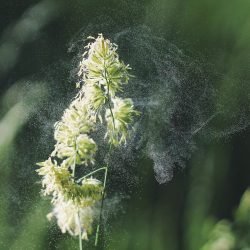One of the most annoying complaints in winter is a blocked nose. As well as bothering the airways, it makes the body tired with the stress it generates. Nasal congestion usually comes on the heels of a cold, flu or allergies. It can last a few days, weeks or even months, depending on the situation. And when it does happen, the days seem endless. Fortunately, there are simple ways to relieve nasal congestion effectively. Discover them in the following paragraphs, and above all, put our advice into practice!
What really happens when I have a blocked nose?
Nasal congestion, more commonly known as a “blocked nose”, is an uncomfortable and often embarrassing sensation. But what exactly happens in our bodies when we suffer from it?
- Inflammation of the nasal passages: Nasal congestion generally occurs when the mucous membranes inside the nostrils become inflamed and irritated. This inflammation can be caused by a variety of factors, such as an infection (like a cold), allergies, environmental irritants, or changes in the weather.
- Increased Mucus Production: In response to this irritation, our body begins to produce more mucus. This extra mucus is designed to trap foreign particles and help fight infection. However, the excess mucus can block the nasal passages, creating a blocked nose sensation.
- Vascular reaction: During nasal congestion, the blood vessels in the sinuses can also dilate. This process, called vasodilatation, contributes to the inflammation and obstruction of the nasal passages, aggravating the sensation of a blocked nose.
- Involvement of the immune system: When congestion is caused by an infection, the immune system goes into action. White blood cells are sent to fight the infection, which can lead to increased mucus production and further inflammation.
- External factors: In addition to infections and allergies, factors such as dry air, pollution, smoking or certain medical conditions can also contribute to nasal congestion.
By understanding what’s going on inside our bodies, we can better approach the treatment of nasal congestion. Methods such as moisturising, using nasal sprays, taking medication or breathing exercises can help reduce inflammation and relieve symptoms.
Relieving nasal congestion at home: Natural tips and remedies
Nasal congestion, often perceived as a simple inconvenience, can actually have a significant impact on our daily lives. Fortunately, there are several simple, natural methods for relieving this uncomfortable condition right from the comfort of your own home. These remedies can be easily incorporated into your daily routine and offer a gentle alternative to drug treatments. Whether it’s using warm drinks to soothe and moisturise the nasal passages, opting for a natural nasal spray, or taking steps to humidify and purify the air around you, these methods are both practical and effective. Let’s find out how these simple actions can help you breathe more freely and improve your well-being.
Drink hot beverages
Hot drinks, such as tea and herbal tea are your best friends for clearing up nasal congestion. Just bringing the cup up to your lips helps you breathe easier. The hot steam moisturises and clears your nostrils. Peppermint, ginger, honey, lemongrass… You’re spoilt for choice when it comes to making a good decongestant herbal tea. And don’t hesitate to make yourself a vegetable soup with garlic and spices from time to time. As well as spicing up the soup, the hot condiments will help to unblock your airways.
Use a nasal spray
One of the best ways of getting rid of nasal congestion is to use a spray. It has an immediate effect on the affected area, the nostrils. Salt water salt water or saline solution in a spray bottle is all you need to breathe easier. But you can also turn to a nasal spray formulated by specialists. These are easy to find on our online Organic Pharmacy. Opt for those with natural, effective compositions: essential oils, plant extracts, bud extracts, etc. And find out about their virtues before you buy.
Take the right medicine
A blocked nose doesn’t just happen. It’s often the result of an illness: a cold, sinusitis, flu, allergies, etc. Sometimes, grandmother’s remedies aren’t enough to clear it up. So, in addition to herbal teas and nasal sprays, you need medication. So make an appointment to see your doctor. He or she will be able to prescribe an appropriate treatment for a congested nose and irritated throat. Most products of this type contain ingredients with multiple virtues. These include grapefruit seed extract, rosemary extract, eucalyptus, pine, etc
Humidifying and purifying room air
Humidifying the air in the room moisturises your nasal cavities and helps mucus to drain more easily. Using a humidifier is the most obvious way to do this. However, water boiled for 10 minutes in a saucepan will also do the trick. In all cases, it is advisable to add essential oils to the liquid used. As well as decongesting your nose, the vapours will purify the air in your home. Choose Ravintsara, lemon or eucalyptus essential oils. You can also use a product like PERUBORE Inhalation d’huile essentielle Rhume 15 Capsules for added convenience. All you have to do is place a capsule in a bowl or inhaler, then pour very hot water over it. It’s important to wait a few minutes to avoid any risk of burning when inhaling the vapours. Then simply inhale the vapours.
New treatments for nasal congestion
Nasal congestion, a common and often distressing complaint, is now being treated with significant advances. Cutting-edge technologies and innovative procedures now offer new prospects for sufferers (1)
Radiofrequency treatment for chronic rhinitis:
One notable advance is the use of radiofrequency-based technology, which directly targets the underlying cause of excessive mucus production. This gentle technique, initially developed in the United States, can be performed under local anaesthetic. In fact, it involves the insertion of a thin device through the nostril, for precise, minimally invasive treatment. This modern treatment is an interesting option for those seeking an alternative to traditional methods.
Improvements in Endoscopic Sinus Surgery:
Endoscopic sinus surgery, an already well-established approach, has undergone significant improvements, particularly in the United States and Europe . It now allows more precise and less invasive treatment of various nasal and sinus pathologies. This surgical technique has become a reliable solution for cases of chronic rhinosinusitis, offering patients improved quality of life.
Use of Sinus Eluting Steroids:
This innovation, developed in biomedical research laboratories, involves implanting devices in the sinuses to release anti-inflammatory drugs. This method has shown promising results in reducing inflammation and improving post-operative outcomes, representing a step forward in the treatment of nasal congestion.
Balloon Sinuplasty:
Finally, balloon sinus catheterisation is a minimally invasive technique developed in the early 2000s in the United States. It is a minimally invasive procedure that is gaining in popularity, particularly for children. This method, involving the use of a balloon to dilate the sinus openings, is recognised for its safety and effectiveness, offering an interesting alternative to more conventional surgery.
These advances offer new options for those seeking more modern, less invasive solutions to nasal congestion. They represent hope for a significant improvement in the quality of life of those affected.
Preventive advice to avoid nasal congestion
Nasal congestion is not only uncomfortable, it can also affect your quality of life. Fortunately, there are a number of preventive measures you can take to help avoid the problem. Here are a few useful tips:
- Maintain Good Hygiene: Wash your hands regularly, especially during cold and flu season. This helps reduce the spread of viruses and bacteria that can cause nasal congestion.
- Manage Allergens: If you have allergies, it’s crucial to minimise your exposure to allergens. This can include using high quality air filters, regularly cleaning surfaces in your home, and avoiding known triggers such as dust, pollen, or pet hair.
- Humidify your environment: Air that’s too dry can irritate the nasal passages. Use a humidifier to maintain a comfortable level of humidity in your home, especially during the winter months.
- Ventilate Living Spaces: Ensure good air circulation in your home or workplace. Opening windows regularly to let fresh air in can help reduce airborne irritants.
- Avoid Smoking and Smoke: Cigarette smoke is a major irritant to the respiratory tract. Avoid smoking and exposure to second-hand smoke to reduce the risk of nasal congestion.
- Healthy Diet and Hydration: Drinking enough water and maintaining a balanced diet helps to boost your immune system. Certain foods, such as citrus fruits, ginger and garlic, are known for their anti-inflammatory properties and can help prevent nasal congestion.
- Regular physical exercise: Regular exercise improves blood circulation and boosts the immune system, thereby reducing the risk of nasal congestion.
- Preventive Medical Consultation: If you are frequently prone to nasal congestion, a consultation with an ENT specialist may be beneficial. They can identify potential underlying causes and suggest specific preventive strategies.
By following these tips, you can significantly reduce the risk of nasal congestion. Taking care of your nasal health is an important part of maintaining general well-being.
Breathing exercises to relieve nasal congestion
Nasal congestion can be a major obstacle to daily well-being. Fortunately, some simple but effective breathing exercises can help relieve the problem. These techniques, which are easy to incorporate into your daily routine, can offer significant relief.
- Deep breathing: Deep breathing is an effective way of clearing nasal passages. Sit comfortably and breathe deeply through your nose, then slowly exhale through your mouth. Repeat this exercise several times to help open the airways.
- Alternate nostril breathing: This yoga technique, known as “Nadi Shodhana”, is beneficial for balancing and calming the respiratory system. It involves alternating the breath between the two nostrils, using the thumb and forefinger to close each nostril alternately.
- Diaphragmatic breathing: By breathing deeply with the diaphragm rather than the chest muscles, you can improve the efficiency of each breath. This can help reduce congestion by improving airflow through the nasal passages.
- Respiratory Strengthening Exercises: Exercises such as “pursed lip breathing”, where you breathe in through your nose and out slowly through pursed lips, can strengthen the respiratory muscles and improve nasal ventilation.
- Yoga and meditation: Regular yoga and meditation practices can not only improve your breathing, but also reduce stress, a factor known to aggravate nasal congestion.
By incorporating these exercises into your daily routine, you can not only relieve nasal congestion, but also improve your overall respiratory health. They’re simple, require no special equipment and can be done at any time of day.
Natural supplements to relieve nasal congestion
| Supplement | Description |
|---|---|
| Puressentiel Respiratory | Moisturising spray based on seawater, purified water and organic calendula extract. Can be used from the age of 10. |
| Rhinicur Nasal Shower | Nasal douche kit with rinsing salt for deep cleaning of the nasal cavities. |
| Rhino-horn lota NetiFlow | Nosewash device with warm salt water, ideal for colds, sinusitis and allergies. |
| DR THEISS Colloidal Silver | Nasal spray with colloidal silver to moisturise and soothe nasal irritations. |
| Naturactive Nasal Spray | Nasal spray combining isotonic sea salt and essential oils to decongest and purify. |
| Pileje Azéol | Double-action nasal spray with cypress extract and Bifidobacterium breve to relieve nasal congestion. |
References
- https://www.researchgate.net/publication/368492278_Current_and_Emerging_Treatment_Options_in_Sinus_and_Nasal_Diseases_Surgical_Challenges_and_Therapeutic_Perspectives





